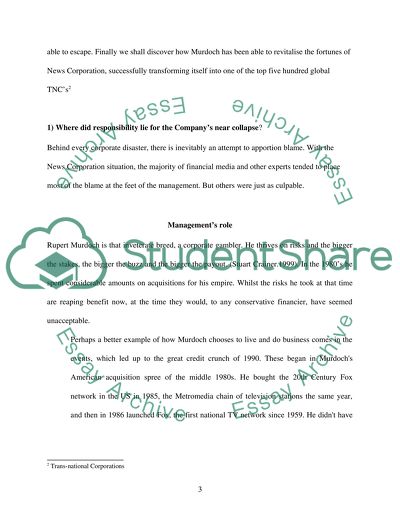Cite this document
(“News Corporation Near Collapse (1990) & Recovery Essay”, n.d.)
News Corporation Near Collapse (1990) & Recovery Essay. Retrieved from https://studentshare.org/miscellaneous/1513902-news-corporation-near-collapse-1990-recovery
News Corporation Near Collapse (1990) & Recovery Essay. Retrieved from https://studentshare.org/miscellaneous/1513902-news-corporation-near-collapse-1990-recovery
(News Corporation Near Collapse (1990) & Recovery Essay)
News Corporation Near Collapse (1990) & Recovery Essay. https://studentshare.org/miscellaneous/1513902-news-corporation-near-collapse-1990-recovery.
News Corporation Near Collapse (1990) & Recovery Essay. https://studentshare.org/miscellaneous/1513902-news-corporation-near-collapse-1990-recovery.
“News Corporation Near Collapse (1990) & Recovery Essay”, n.d. https://studentshare.org/miscellaneous/1513902-news-corporation-near-collapse-1990-recovery.


